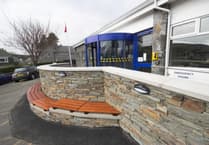Hands up if you’ve got a wood burning stove or a coal fire? Do you want the good news or the bad news?
Tell you what, don’t bother. You don’t want to know. With all the troubles that fill the papers and show up on the news it seems to me that if you just poke your head over the wall, you’ll be guilty of doing something that you shouldn’t be doing.
The thing is, I’ve just heard the news. There is going to be a hatchet job on solid fuel domestic fires and heaters. To you and me that means no more cosy log fires or glowing, coal fired toe toasters.
Now I’m sure that you will all remember all the excitement about diesel-engined cars.
They were supposed to be the best thing since Henry Ford discovered black paint. Fair enough, it would cost you a bit more to buy the car, but after the initial outlay you would be onto a winner.
Not only did diesel cost less than petrol, you would get more miles of motoring per gallon. And if that wasn’t enough to convince you to change to diesel, the engines were supposed to be more efficient and easier to repair.
But then someone spoiled the fun and suggested that it might be a good idea if the manufacturers told the truth about diesel engines and admitted to the rest of the world that the data they had published about the emissions being released into the atmosphere was somewhat short of the truth.
A similar change of direction in the official advice issued by the powers that be has recently upset the users of open fires and log burners.
We all know that feeling of pure pleasure that you get from standing with your back to an open fire and lifting your kilt, so answer this one simple question.
Open fires. Yes or no?
When we made our move to the wilds of Greeba in mid 1965, it was a big step for two young newly-weds to take.
We had become owners of a stone built, two-up, two-down cottage, an outside toilet and a half acre of overgrown field.
There was no bathroom, just a tiny kitchen with a square sink that would now be called fashionable.
We also had an open fire.
We had a field that was surrounded by overgrown hedges and I was young and fit. I had one of those bush saws and I spent hours tidying up broken branches and scrap pieces of whatever was lying around.
But it was soon obvious that we would have to find a permanent source of firewood.
The Forestry Board sawmill at Laurel Bank was the answer to our prayers.
I was a regular customer at Laurel Bank and on one of our sawmill trips I had noticed a huge pile of small pointed off-cuts in the corner of the sawmill yard.
We had recently upgraded our transport fleet from a Mini Van to a Morris Minor van. This had increased our carrying capacity and after some negotiation with the sawmill management team we had arrived at a price of 10 shillings for a van load. At this time, a bag of coal delivered from Quirk’s in Peel would cost 11 shillings (55p).
We could fit in two full van loads in one half day.
We now had a bathroom, a kitchen and a solid fuel hot water system that could not be satisfied by the carrying capacity of a small van.
Things had to change. We soon graduated to a chainsaw and a motorised log splitter. We still bought our firewood from the Forestry Board, but it was now a truckload of tree trunks, delivered to the door.
We lived in different times. We had a need, we had the energy, and the ability to solve our problem.
Very few young families today could do the same. We used waste and rubbish to heat our home.
There must be some method of using natural rubbish to do the same today. Perhaps there are some unemployed diesel engineers who could help to solve the problem?
A decade ago Pullyman - aka Michael Cowin - was diagnosed with Parkinson's Disease, a condition that affects people in different ways. Michael discovered writing and Island Life is featuring some of his musings. Sometimes topical, sometimes nostalgic, read about life as seen through the eyes of Pullyman

.png?width=209&height=140&crop=209:145,smart&quality=75)



Comments
This article has no comments yet. Be the first to leave a comment.